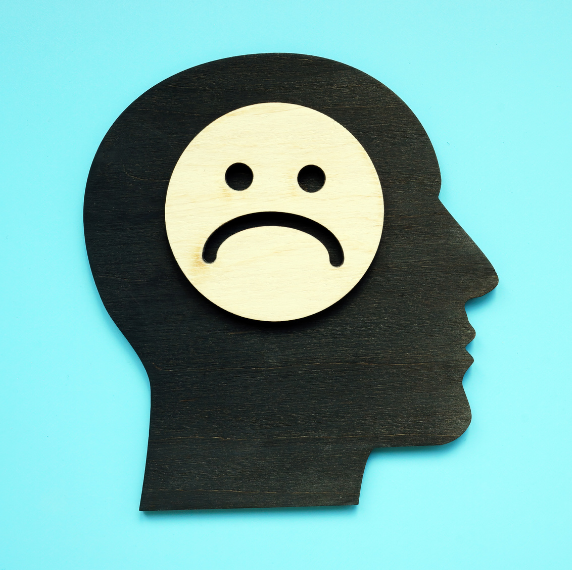Tips from CAPS: Easing the impact of negative thoughts
by Drew Stapleton, MSW Intern from WSU School of Social Work
Our mental health tips of the week are currently focusing on anxiety because it is such a common experience for college students (and for the general public). Two weeks ago, we discussed some of the somatic aspects of anxiety, and last week we examined an environmental cause of anxiety, overstimulation. This week we will focus on negative automatic thoughts, which are one of the cognitive components of anxiety.
Negative automatic thoughts (NATs) occur as we involuntarily react to situations that impact our sense of self, others or the world. For example, a student receiving a significant writing assignment may experience thoughts like, “I’m no good at writing,” or “This assignment is going to bring my grade down.”
We are typically consciously aware of these thoughts but unable to control them. If we leave them unaddressed, these thoughts can quickly spiral into more catastrophic thinking, like, “I don’t think I’m cut out for this program,” “Failing out of this program is going to be really embarrassing,” or “I fail at everything I try.”
Interestingly, as the thinking becomes more catastrophic in nature, the thoughts also recede from our conscious awareness as they get further away from the initial NAT. This thought spiral happens almost instantly, and we are often left with feelings of anxiety, frustration, sadness or guilt.
Try this: The first step to easing the impact of NATs and reducing mental spiraling is to recognize that they are happening. As you notice a negative thought occurring, try to observe it as if you are observing someone else’s thoughts. It helps to approach this exercise from a stance of nonjudgement. Try not to judge the thoughts (as good, bad or otherwise) and certainly try not to judge yourself for experiencing them.
Another way to think of it is like watching cars move through traffic. Observe them as they appear, then gently let them go as they pass. Observing thoughts as separate objects creates a healthy amount of distance from them and reduces their impact on our sense of self and well-being.
You may even try writing your thoughts down. This has the added benefit of keeping a record of these thoughts so that you can identify patterns, understand them more deeply or perhaps bring them to a mental health counselor to help make sense of them.
As always, be patient with yourself if this feels difficult at first. Some of these techniques are easy, and some of them take practice. The purpose of these tips is to add to your mental health toolbox so you can use the ones that resonate most with you.
CAPS is here for you
WSU Applebaum offers dedicated Counseling and Psychological Services support to students on a group or individual basis. If you are interested in participating in CAPS services that can help, call 313-577-3243 or send an email. If you are struggling after 5 p.m. or during a weekend, holiday or university closure, call the CAPS Afterhours Program at 313-577-CAPS.
An anchor in urban health care
The Eugene Applebaum College of Pharmacy and Health Sciences is built on more than 100 years of tradition and innovation in the heart of Detroit. We have grown deep roots in our city, harnessing its powerhouse hospital systems and community service organizations as vibrant, real-world training grounds for students, with an ongoing focus on social justice in health care. And our research at all levels — from undergraduates to veteran faculty members — translates into creative solutions for healthier communities.
Wayne State University is a premier urban research institution offering approximately 350 academic programs through 13 schools and colleges to nearly 24,000 students.